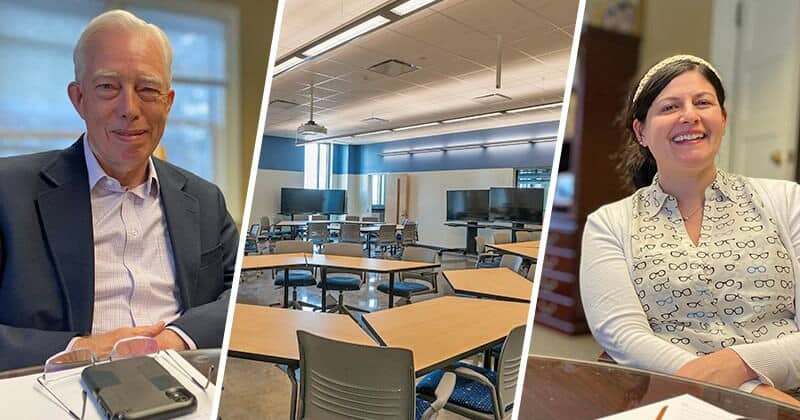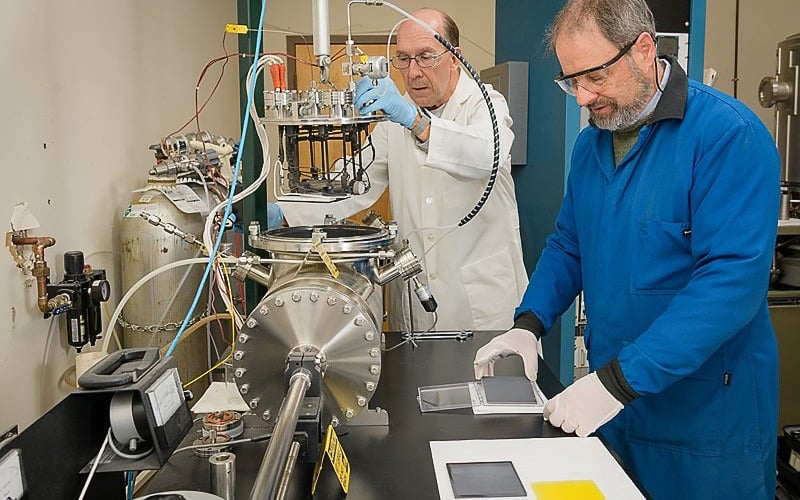RESEARCH
DISCOVERY
A Blog Devoted to UD Innovation, Excellence & Scholarship
COVID-19
UD’s Undergraduate Work-Study Program on a Roll
Iain Crawford (left) and Lauren Barsky have steered the University of Delaware’s Undergraduate Research Apprentice and Work-Study (UDRAW) program through a most unusual year. This photograph of the empty classroom was taken in March 2020, on the day the World Health Organization declared a global pandemic, leading to closure of almost all in-person work at that time and prompting new health protocols that include wearing face coverings and physical distance.
You might expect to find a 2-year-old undergraduate work-study program under layers of rubble these days, what with all the restrictions because of the coronavirus (COVID-19) pandemic.
But despite the unprecedented upheaval and what must have often seemed like a game of 52-card pickup, students in the University of Delaware’s Research Apprenticeship Work-Study (UDRAW) program have made significant progress on projects and discovered new things about themselves, their world and their options for the future.
UDRAW, which provides a broad range of research-related, part-time jobs to eligible students, drew 20 students in its pilot launch in 2018-19. That number has more than tripled in the past two years. Seventy-four students participated in the 2019-20 academic year, 77 have taken part so far in this academic year and there are still open positions for which faculty are actively recruiting. (To explore those, click here.)
Work-study programs are “one of the hottest trends in undergraduate research nationally,” said Iain Crawford, director of UD’s program and a past president of the national Council on Undergraduate Research (CURE). “We have an unusually large summer research program, but what is important about this program — it shifts the way we think about undergraduate research, expanding access to a high-impact practice.”
The 2015 book New Directions for Higher Education devotes a chapter to undergraduate research, linking it to academic success, higher graduation rates and greater persistence, with especially significant benefits for underrepresented minorities.
“These are powerful programs and increasingly relevant to the University of Delaware as the student population changes over the next few years,” Crawford said.
UDRAW allows all participating students to experience research and make some money in the process. A paying job is essential for many students and these work-study options provide income — usually up to $1,000 for a semester of work.
Rachel Antwi, a sophomore majoring in human services, said she loves the program. She is in her second year with UDRAW.






